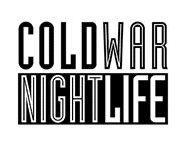Richard Melville Hall grew up in Connecticut, a beautiful and somewhat tranquil state within commuting distance of Manhattan. Today, it is where hedge fund managers live to escape the crime, grime and taxes of New York; but, for a local teenager growing up in the 1970s, a passion for music meant a trip in the opposite direction.
Hall got his nickname and DJ moniker through a family connection to the author of Moby Dick, a widely read novel about the savagery of the whale trade. Did that have anything to do with Moby the DJ becoming a vegan and animal rights activist? Hard to say definitely, on the account given in Porcelain, his recent autobiography, but abstention and the internalisation of suffering are recurring themes in his life story.
Before there was Moby the global superstar of sync rights, there was Moby the teenaged American punk. This kid was straight edge – a subculture influenced by Christian strictures, which made it big in Salt Lake City – and lived in an abandoned building with no running water. He prayed for forgiveness after having sex and drank soda at gigs. He smelled bad and didn’t have any ambitions for a proper job, living on oranges and the occasional box of soy milk.
So he started to DJ. Moby got a tape into the right hands and started to play NY clubs. One thing led to another, and pretty soon he was knocking out rave anthems of his own. In the UK, he became known as Moby Go, after his first hit, and for a while things were on the up.
Then he put out an album of American punk songs called Animal Rights. Its sales stank as bad as he did in his abandoned factory days. Rave music died away, along with his audience, and that was almost the end of that dream.
It would have been the end of the road, if Moby didn’t have an accidental ace up his sleeve: Play. An album of mostly danceable pop music with sampled black artists providing the vocals, Play was unconventional but timely. It was just the thing that advertising companies were looking for: the soundtrack for marketing perfumes, cars and real estate agencies.
He doesn’t mention it in the book, but Moby played two shows at London’s Scala when Play came out. The first was half full, attracting some faithful fans and a flock of Daniel Miller’s young acolytes. The second was rammed. The difference between the two shows was advertising – rather, the use of Play in advertisements shown endlessly in movie theatres and on television. Moby reached a new audience through the licensing of Play’s tracks, rather than radio airplay, and the cross-over appeal of his new material was given a turbocharge through this channel.
The rest of Moby’s story, as told in Porcelain, is a series of bad dates, breaking up with nice girls and dabbling in alcohol. The book goes to some lengths to show why Hall’s nickname should have been Dick, as he seems obsessed with recounting where he has put it over his career. Like a defrocked monk, Moby stepped over the lines he had drawn for himself and discovered that there is life outside that imaginary box. Whether the reader needs to know so much about those experiences is a question his editor seems not to have asked.
What is missing from the story, one suspects, is the part of Moby he didn’t think we wanted to hear about: the songwriter who is so prolific he needs to be chased out of his record company’s offices; the performer who plays Joy Division tracks in his sets and gives his own material punk make-overs. Porcelain is the story of a guy who went from the trailer parks of North-Eastern America to trailers parked at the world’s biggest festivals, but there is more still to be told.

